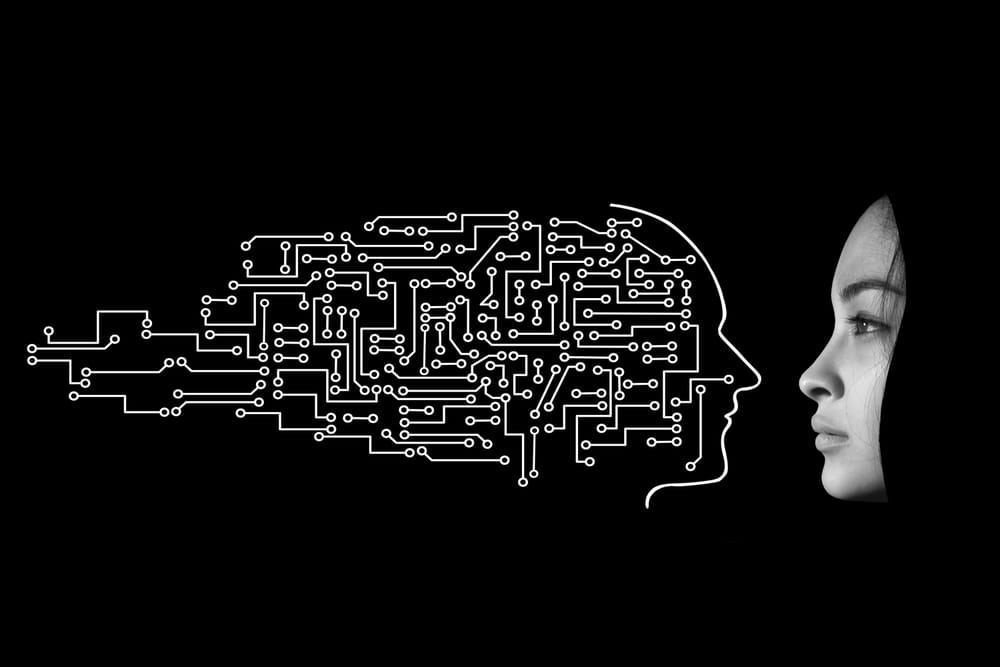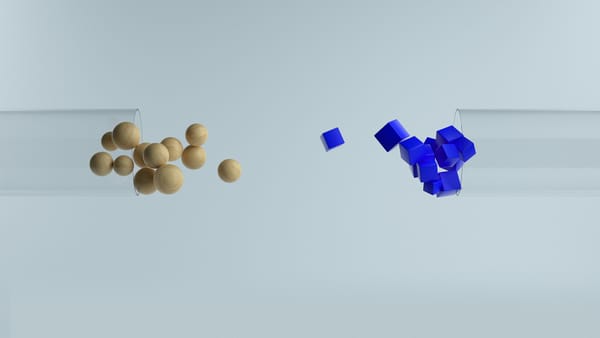AI as Your Personal Data Operating System
Your computer is a collection of electronics like a hard drive, processor, display, networking, etc. The operating system is what takes all those different parts and makes them useful to you.
The icon you see for a PDF you just downloaded is just a symbol for all the ones and zeros on your hard drive that make up the file. There's no physical "thing" in your computer that looks like that icon, but the operating system represents that file to you in a way that is useful. The operating system also lets you use your PDF reader to open up that downloaded file, print it, mark it up, etc.
Your operating system is your intermediary to the hardware and information stored on your computer (and the rest of the world via the internet).
AI is beginning to play a comparable role. AI works to operate on your data, and intermediate it for you, hopefully in ways that are useful. Your horded inbox of the last 10 years of emails is about as useful to you as the raw ones and zeros making up a PDF - but AI stands to change that.
The Power of Abstractions
In many ways, computer science is the study of abstractions. An abstraction could be defined as a simplification of underlying systems, a way of organizing their complexity into something more useful.
As an example, consider the gas pedal on an automobile. Wether fuel injected or carbureted, wether drive-by-wire or cable driven, the simple "press down to go faster, ease up to go slower" of a gas pedal hides a lot of complexity. You don't need to know anything about fuel metering, the Bernoulli principle, air mixing, or any of the rest of the mechanics and electronics of adjusting the rotational speed of the engine in your car. That pedal is a simple and effective abstraction on a complicated gas engine throttling system.
Typing "https://www.google.com" into your web browser brings up the Google homepage, but that URL is an amazingly simple abstraction built on top of thousands of underlying abstractions. There's TLS, which is the encryption that makes the transfer of information safe. There's all the layers of networking abstracted on top of each other that allow your browser to get a bunch of individual page components from a bunch of different servers and piece them together. Then there's the abstractions that let the page designer write simple markup that tells your browser exactly how to render what shows up on your screen. All that complexity get's summed up into a single address typed in, or a link clicked, and displayed to you as a page on your screen.
The operating system is the primary abstraction for a much of our day-to-day usage of technology. It's the layer that lives between our devices and us.
Even the web browser we use to navigate to Google in the example above couldn't do its thing without an operating system. An operating system takes the billions of processing transistors and trillions of storage bytes on your phone, laptop, or any other reasonably complex electronic device and exposes the power of all those pieces of hardware into something useful.
The AI Abstraction
So with that background as an explanation, how is AI an abstraction and how is it like an operating system?
AI is poised to act as an all-knowing abstraction layer over all of our data the same way a traditional operating system acts as an abstraction over our hardware.
Let's consider a personal photo collection to examine how AI can provide a useful and powerful abstraction for a typical user.
Many people have tens of thousands of photos, and this photo collection could contain photos across any number of locations, with hundreds of people featured, doing countless different activities. Getting the right photo you need when you need it has been challenging with traditional approaches. Perhaps you remember that you took a certain photo with your Grandma and Grandpa, but you don't remember exactly when it was to go find it by date. You might remember that it was around the holidays and you took the photo at their house, but you can't remember where or which holiday it was exactly.
So where does AI come in? AI is smart enough to scan all of your photos in your collection and build up true intelligence about them. It can identify people, places, holidays, objects, lighting conditions, clothing articles, and more. Previously there was no way to search for "Photo where I am with Grandma and Grandpa during a holiday and I am holding the family dog while wearing a pink sweater", but with AI as a data operating system, you can get exactly what you need.
Now, suppose you need to edit a photo. The instant that the shutter snapped during that once-in-a-lifetime shot, your daughter had her eyes closed.
The old way of fixing that meant launching Photoshop, finding a similar photo, and doing a bunch of position matching, color correcting, and fine-tuning. Now AI can sort through your photos, find the eyes from all the other photos of your daughter, and synthesize exactly what her eyes should have looked like during that shot.
Writing an email? AI will comb through all of your emails and digest them down to assist you in your responses. AI will operate on your data to bring the useful bits of your emails forward at the time you need them.
Do you get way too many emails every day? AI can summarize them and highlight those that are expected to be most important to you.
Apple Intelligence
Yesterday, Apple showed off some AI capabilities being built into the next generation of their operating systems for various devices.
Apple is frequently accused of taking features and functionality that other companies pioneer, and implementing them as their own. Depending on your perspective you may see this as either stealing, or taking ideas that never found wide appeal and making them viable for the masses. Whatever your perspective, you are likely to feel that Apple is repeating history with their approach to AI.
These images have all been taken directly from Apple, and while they represent an Apple-centric view of AI capabilities they aren't conveying earth-shattering concepts or capabilities. These features either exist already in other systems (Android, Windows, etc.), or will exist there shortly as everybody adapts. Nonetheless, Apple's announced capabilities demonstrate the "AI as an Operating System" concept very well.
If you want some help re-writing or proofreading some text you wrote, AI can now operate on your data (e.g. the text you wrote) to make it more useful to you. Your text can be tweaked and operated on by AI until it says exactly what you want:
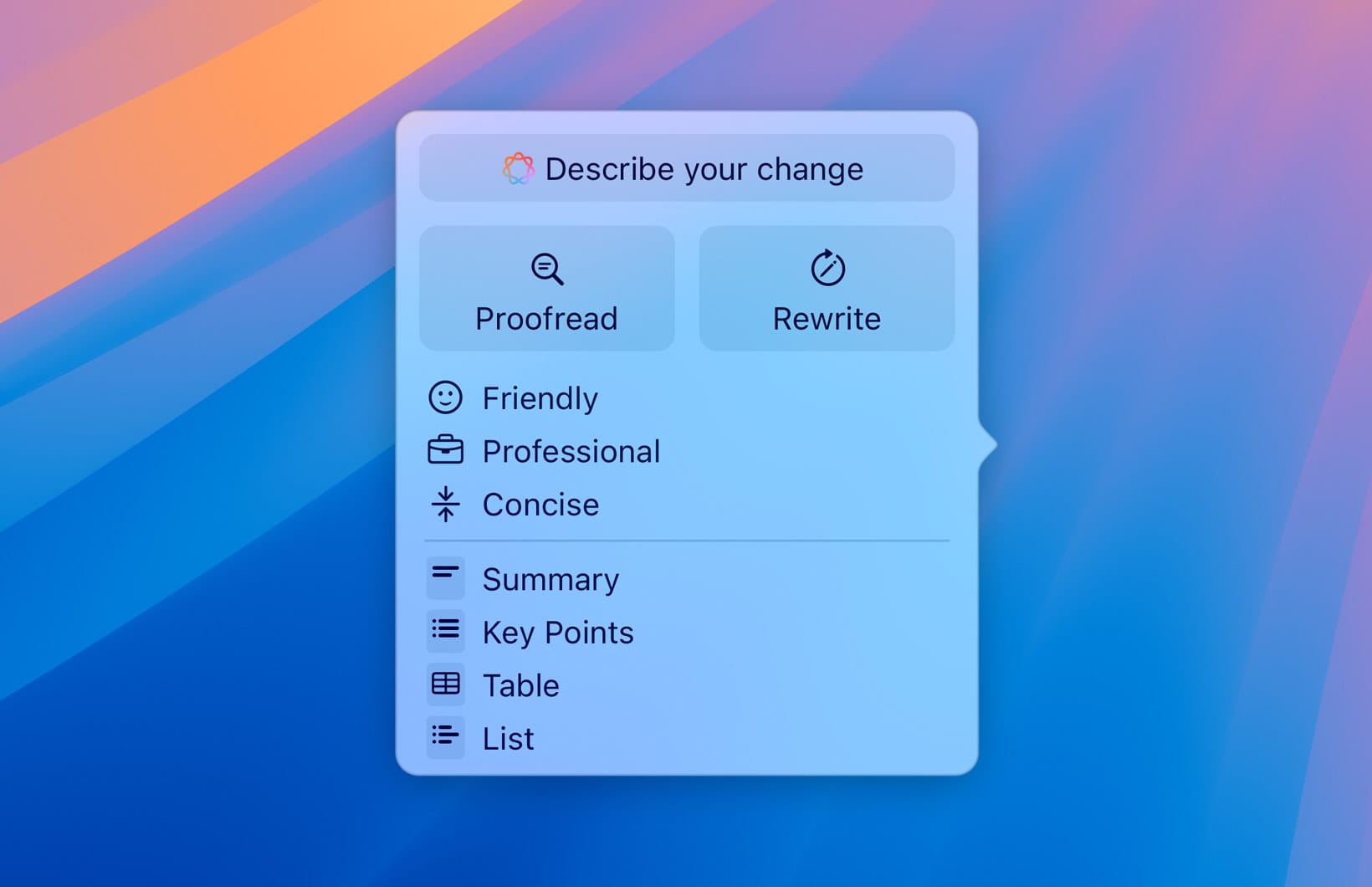
Are you overloaded by notifications? They are now summarized and prioritized automatically for you. Your interaction with app notifications is no longer direct, and AI is now abstracting them for you:
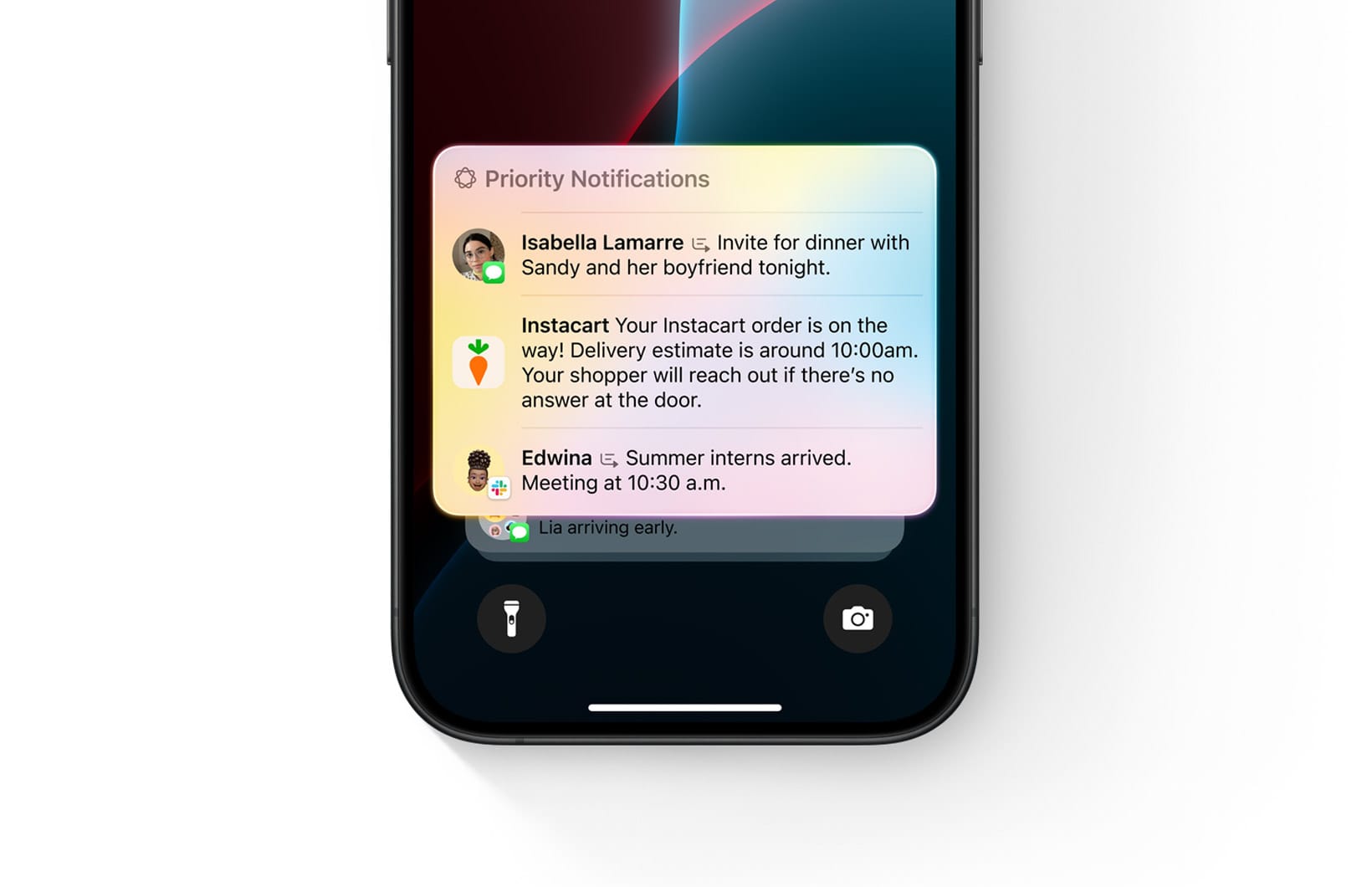
Here is an example of the search capability mentioned earlier. Your AI operating system knows who Katie is, it knows what stickers are, and it knows how to find all the photos where Katie is wearing them on her face:

Magically editing a photo is now a few taps away. AI understands the context of your photos, and knows how to intelligently modify them:
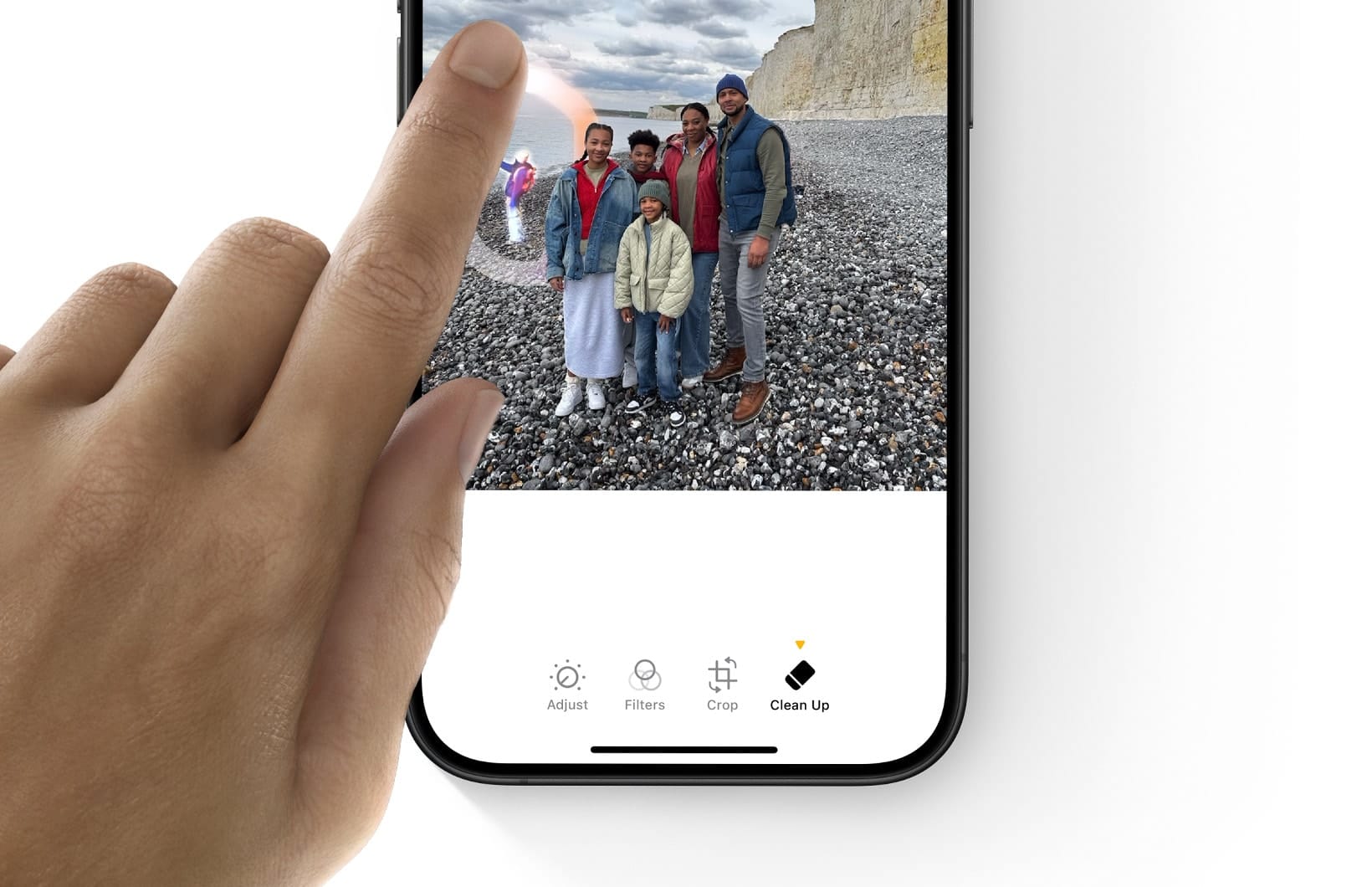
Even your old fashioned operating system has an AI operating system layer on top of it. Our phones and computers are complicated things, and AI is now aware of the data on your screen and the context of your usage, and assistance can be provided to you based on your immediate needs:
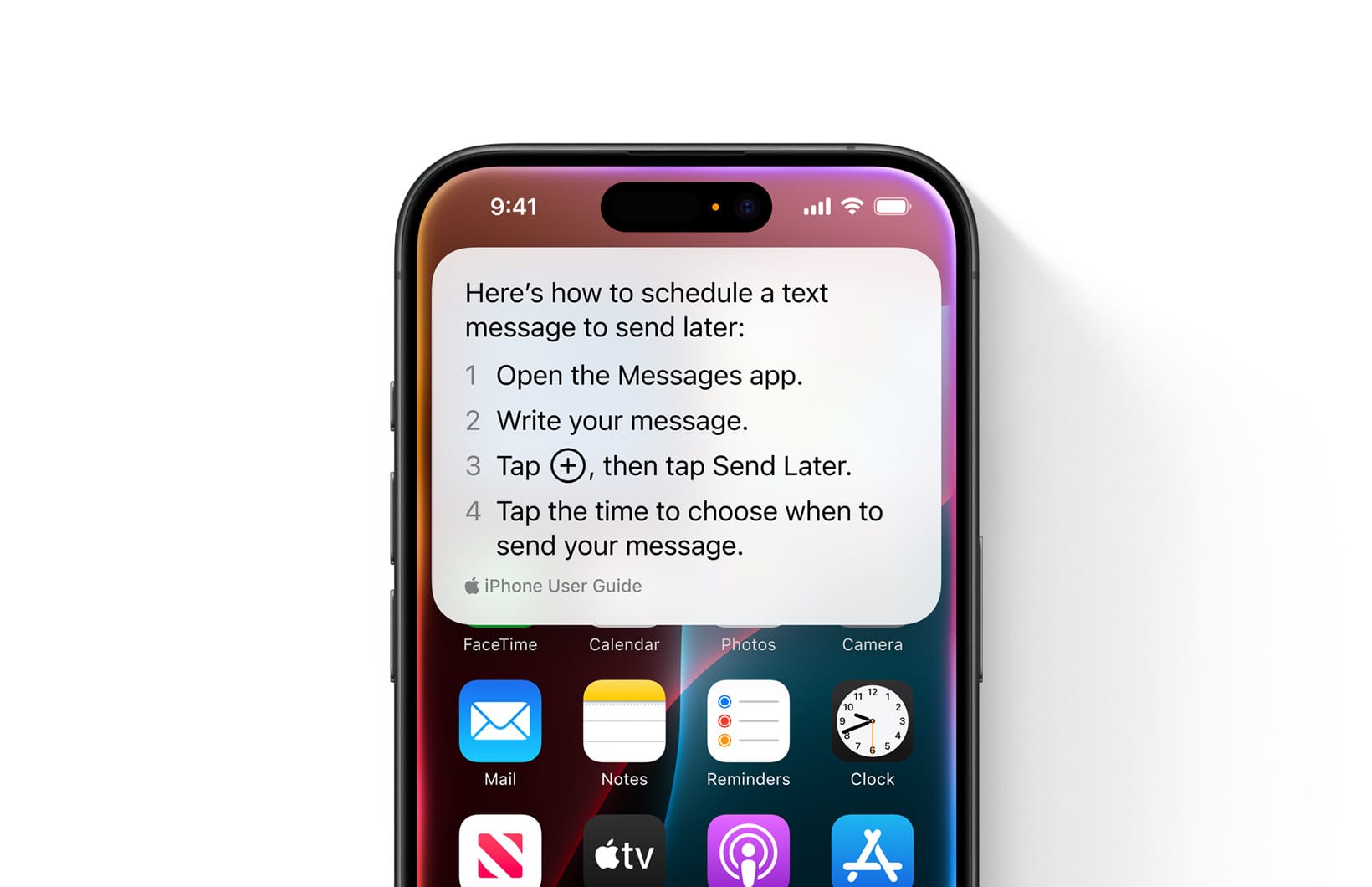
Apple's implementation of AI is hardly revolutionary, except perhaps for their fully-integrated, comprehensive, privacy-oriented approach. These few graphics only show a small portion of their forthcoming AI-based functionality, but they illustrate the concept of AI as a layer to help you better use your data.
The Future of the AI Operating System
AI is brand new. For every perfectly summarized email, there is advice being given to glue cheese to pizza and to eat rocks.
AI has a long way to go, and there will be years of iteration and perfection ahead. The usefulness of AI seems rooted in this ability to interact with your data and amplify its utility though. Much of the current buzz is around generative AI, and generative techniques will certainly continue their improvement. To truly extend its usefulness though, AI seems likely to continue improving in other directions that help us take advantage of and make sense of our data.
The first steps of genuine utility for everyday users of technology have arrived over the last few months, and no longer feel like niche novelties.
I won't pretend to predict the future, but I feel like we have seen a glimpse into what AI can grow into and the paradigm shift that we are likely seeing the start of.
